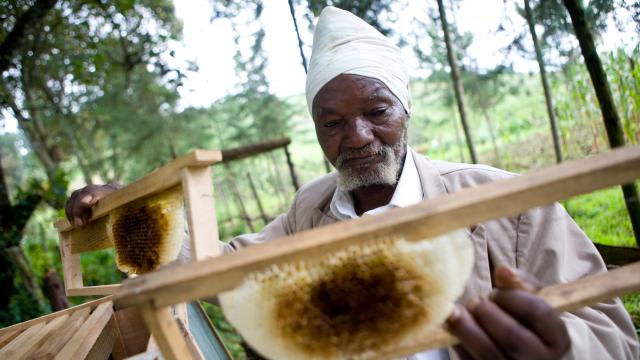2015 was the year that rewrote the future. Along with the historic Paris climate agreement, the global community committed to the Sustainable Development Goals (SDGs) – an unprecedented international commitment to:
- end poverty and hunger
- stop climate change and prevent its most devastating effects
- protect and restore the planet’s environment and natural resources
- advance equality, education, peace and healthy living for all people
The SDGs are formed of 17 goals and 169 targets. Between them they should shape the policies of the 193 countries that committed to them over the next 15 years. These goals have the power to transform our world, and deliver a future in which people and nature thrive.
You can discover more about the goals and targets on the UN Sustainable Development Goals website.
Why are the Sustainable Development Goals important for the environment?
The SDGs are a big step forward for the environment. They recognise that we all depend on the planet’s natural resources – its forests, rivers, oceans and land – for our social and economic wellbeing. Equally, they recognise that our ability to use the planet’s resources wisely depends upon creating a fair, sustainable and prosperous society, and decoupling our economies from fossil fuels and environmental damage.
If the global community makes good on its promises, by 2030 we will live in a world that has:
- halted the loss of biodiversity and saved threatened species from extinction
- ended deforestation
- put a stop to poaching and trafficking of protected species
- ended overfishing and significantly reduced the pollution of our oceans
- created an economy that grows without damaging the environment
It’s now up to us all – governments, charities, businesses, and most of all citizens – to work together to ensure that these commitments become a reality.
An ambitious new approach to saving the planet
The SDGs are different from anything that has come before them – they're fairer, smarter, and more inclusive.
By the people, for the people: the SDGs are the product of three years of discussions between governments from all countries and the largest public consultation in UN history.
Universal: the SDGS aren’t just for developing countries – they apply to all nations, including the UK. As well as getting our own house in order, we need to ensure that our policies at home aren’t having negative impacts globally.
Joined-up: the goals recognise the links between human development, the environment and the economy – for example, it’s impossible to eradicate poverty without tackling climate change and halting environmental degradation.
Everyone’s responsibility: all sectors and all citizens have a role to play in making the SDGs a reality.
What we’re doing
We were closely involved in drafting of the SDGs. As a result, they include a lot of the things that we all care about, including goals on:
- food and sustainable agriculture
- water
- energy
- sustainable consumption and production
- climate change
- oceans
- ecosystems
- forests and biodiversity
Now that we have the agreement the hard work really begins! We’re working in the UK but also with our offices around the world – including China, India, Colombia and Kenya – to create a global network of advocates ensuring that the ambition of the goals is matched by robust action from governments.
And there’s lots that we already do that directly contributes to each of the 17 goals – this graphic shows just some examples (PDF).
